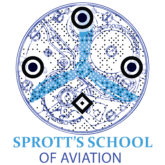Tips for Maintainers…From a Pilot’s Perspective
Aviation is badass. It’s incredible that humans are able to overcome the laws of physics…well, outsmart the laws of physics to allow us to fly at ridiculous speeds, covering thousands of miles in just a few hours.
Another cool thing in aviation is the cooperation and trust that goes into it. It’s literally pilots putting their aircraft and lives on the line by trusting mechanics, who then put their lives on the line by trusting the pilots to fly them where they need to go. Creating an infinite web of trust.
Trust is something people often don’t think about when they think of aviation. That doesn’t make it less important, just not well acknowledged.
The 2-way street of trust that goes back and forth between mechanics and pilots gives a unique relationship between individuals. This can make pilots a little leery when bringing up an issue or suggestion to the mechanics.
Here are a few tips for the maintainers of aircraft from the people who fly them.
Include the Pilot in Maintenance Decisions
When working at an airline the go/no-go decision involves a lot of moving pieces. There’s the pilot, co-pilot, flight attendants, dispatch crew, ATC, ground crew, and maintenance.
This concept of crew resource management should apply to all kinds of aviation. When in general aviation, there are a lot fewer moving parts. That doesn’t mean the decision should be as involved though. Anytime there is any sort of maintenance being done to an aircraft, the pilot should be included. This should go for every decision every step of the way.
Pilots and maintainers each have unique perspectives on their part of the job. That means they should work together whenever possible. On top of that, the aircraft owner should be involved in any decision that is made about their aircraft. Mike Busch, an A&P legend and author of a 4 part series about aircraft ownership and maintenance wrote about how mechanics should always include an itemized list of all work proposed on an aircraft.
This can be a tedious job, but it is extremely beneficial for both the pilots/owners and mechanics.
Some mechanics may want to just do all the work they can on an airplane and pretend like it was an absolute necessity despite it not all being a requirement. This gets them more money for parts and labor. This is kind of unethical though. Some pilots/owners may be ok with this. They might have zero interest in the maintenance of their aircraft, which is a stupid mistake that can also be quite costly.
You can’t control the pilot’s perspective, but you can control yours. If you keep in contact with the pilot/owner while doing maintenance, then you will only improve your reputation. It also gives the pilot/owner the ability to deny work. If they do this, it’s always best to get it in writing to avoid any issues that may or may not result from this denial. But aircraft ownership is expensive and pilots/owners may have the idea of breaking up the work done on their aircraft to better afford it.
Don’t Take Shortcuts
This is a very rare occurrence, but it still happens.
There are instances where mechanics allow their goal to save money to take precedence over properly performing their duties. If you’re not keeping the pilot/owner involved in the decision-making and are instead making the decisions yourself, you might opt for using a lower quality part or skipping out on what feels like a minor aspect in favor of being done with your work and getting paid.
This is kind of a self-explanatory tip, but it should be heeded nonetheless. There are instances of using the wrong kind of screw resulting in fatalities, so it’s just not worth it.
Clear Aircraft Only if You Would Fly on Them
Sometimes you are not the final say on this. That’s why you would have to document any instance of the pilot/owner telling you not to do some work on an aircraft.
The biggest recommendation and tip here is to make it extremely evident that you wouldn’t fly on the aircraft unless the work was done. You, as the maintainer, should never clear an aircraft unless you would fly on it yourself or send your loved one on it. If you take this view on the maintenance aspect of an aircraft, you are pretty much guaranteed to be more successful.
Even though some pilots/owners may get annoyed at your insistence initially, it’s important to make it known. No amount of money is worth the price of someone’s life; therefore, only clear the aircraft if it’s totally safe.
Don’t do Unnecessary or Unsolicited Maintenance
Here we have a two-fold tip for maintainers. It goes hand in hand with having the itemized list of work and including the pilot/owner in the maintenance decisions.
Mike Busch lays out in his manifesto that the majority of issues aircraft have is caused by maintenance-induced errors. There is a myriad of instances where a maintainer opens up the airplane to fix one thing but ends up accidentally breaking something else on accident. Sometimes this is caused by taking shortcuts instead of following best practices and protocol. Other times it’s caused by a pilot telling you not to do something that you think should be done.
The issue with doing unsolicited maintenance is that some pilots may have a financial plan for their aircraft. If you start just working on something without their permission, then you may mess up their plan and cause you to lose a potential long-term customer. If you start doing unnecessary maintenance because “it’s close to the time for it,” then it could very easily lead to an unnecessary issue.
Then they can chalk up another issue to being a maintenance-induced error. The goal of a maintainer is to make the airplane run so smoothly that you don’t have to do as much work on it. If you, as a maintainer, follow these tips: including the pilot/owner in maintenance decisions, not taking shortcuts, only clearing aircraft to fly if you would fly on them, and not performing unnecessary or unsolicited maintenance, then you are going to create many happy customers.
Which, of course, bolsters your reputation, makes you long-lasting customers, and allows you to charge more for your work.


